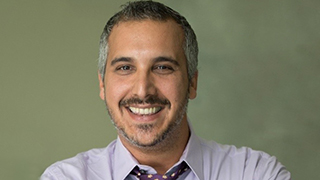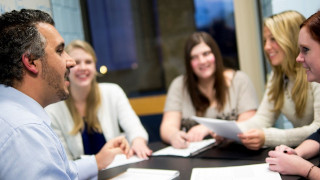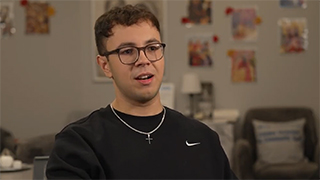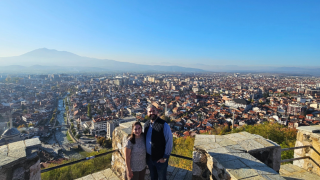Speech-Language Pathology Professor Awarded $1.4 Million Federal Grant to Develop Writing Intervention - Seton Hall University
Thursday, July 2, 2020

Department of Speech-Language Pathology, received $1.4 million in grant funding from the U.S. Department of Education, Institute of Education Science's National Center for Special Education Research (NCSER) program to develop and test an intervention for improving writing in 4th and 5th grade students with LLD. The program, Writing in Students with Language-based Learning Disabilities, also known as Project WILLD, will allow researchers to create and field-test an intervention through an iterative process that allows for feedback from educators and schoolchildren who participate.
The purpose of Project WILLD is to create an intervention that targets word, sentence, and discourse level writing skills in students with LLD. It will be administered as part of individualized education plan (IEP) special education or speech-language pathology services to improve writing outcomes in students with LLD. The intervention created through Project WILLD can be implemented by speech-language pathologists (SLPs) and/or special educators (SEs) working with elementary-aged students. The intervention will go through four iterations of development over the four years of the project.
Language-based Learning Disability Interventions
"Children with LLD are those who have difficulty with reading and writing with related
oral-language deficits," says Dr. Koutsoftas. "It could be that early childhood oral-language
deficits are the cause of reading and writing difficulties or that oral language deficits
emerged later in school when language demands of the curriculum have surpassed a child's
written language ability. Either way, writing ability is an essential component of
modern life for academic and social purposes and Project WILLD will work to find ways
for educators and speech-language pathologists to improve writing skills for elementary
students with LLD."
Currently, 4th and 5th grade students with LLD receive oral language supports from a speech-language pathologist and written language supports from special educators. The goal of Project WILLD is to combine oral and written language intervention strategies into one program that meets the needs of these students and can be delivered by either special educators or speech- language pathologists. One of the goals of this work is to reduce the amount of time that students with special education needs are pulled from the general education classroom, while improving their writing skills.
"Being awarded this grant from the U.S. Department of Education is a testament to the dedication of our expert faculty who diligently seek to transform theory into clinical practice. Dr. Koutsoftas' research agenda and those of many other SHMS faculty continue to advance practice, research and education through their groundbreaking innovations." said Dr. Brian B. Shulman, Dean of the School of Health and Medical Sciences at Seton Hall University.
WILLD Through the Years
During the first year of the project, the researchers will develop a 12-week intervention
designed to improve writing in these 4th and 5th grade students. The intervention
will focus on science topics including the environment, pollution, the solar system,
and some local ecosystems of New Jersey. Development activities include writing lesson
plans, gathering science-related materials including books and videos, and ways to
measure the usability of the intervention. At the end of the first year, educators,
including special educators and speech-language pathologists, will be recruited to
review and provide feedback on the materials.
In the second year, the intervention will undergo its first field test that will use a pre- and post- test research design with the goal of demonstrating the usability, feasibility, and impact of the intervention. With each component of year two, the researchers will further refine and develop the intervention.

Within year three of the project, researchers will conduct a small randomized controlled trial of the intervention that involves approximately 10 educators and 50 students with language-based learning disabilities. This will be the pilot study of the intervention to demonstrate the feasibility of Project WILLD.
Finally in year four, the team will report their findings, make materials available through the SHU ROW-Lab website, and develop a grant proposal for scale up and initial efficacy testing. At the end of the fourth year of the project, the researchers will be able to share findings on how to better improve writing outcomes for students with LLD.
Training Future SLPs
This grant provides funding for two graduate students over the first three years of
the project. Under the grant guidelines, two graduate students currently pursuing
a Master of Science in Speech-Language Pathology or a PhD program with a focus in
speech-language pathology or special education will be hired for each year of the
project and receive some tuition remission along with a monthly stipend. They will
work 20 hours per week supporting project activities.
Researchers and Consultants
In addition to the key personnel who will serve as consultants, grant funds have been
allocated to hire a full-time project coordinator for three years. The candidate for
this position will need to be a licensed New Jersey speech-language pathologist and
will work to support the co-principal investigators on the project who are listed
below:
- Anthony D. Koutsoftas, PhD, CCC-SLP, Associate Professor, Department of Speech Language Pathology and Director of the Reading Oral-Language and Writing Lab at Seton Hall University; Project Director for WILLD
- Cynthia Puranik, PhD, Professor, College of Education and Human Development, Georgia State University, Atlanta, GA; Co-Project Director for WILLD
Consultants:
- Kenn Apel, PhD CCC-SLP, Professor, University of South Carolina
- Gary Troia, PhD CCC-SLP, Associate Professor of Special Education, Michigan State University
- Yaacov Petscher, PhD, Associate Director at the Florida Center for Reading Research, Florida State University, Tallahassee, FL
For more information on Project WILLD and available grant-funded positions, contact Dr. Koutsoftas at anthony.koutsoftas@shu.edu or visit his blog.
Categories: Health and Medicine, Research






